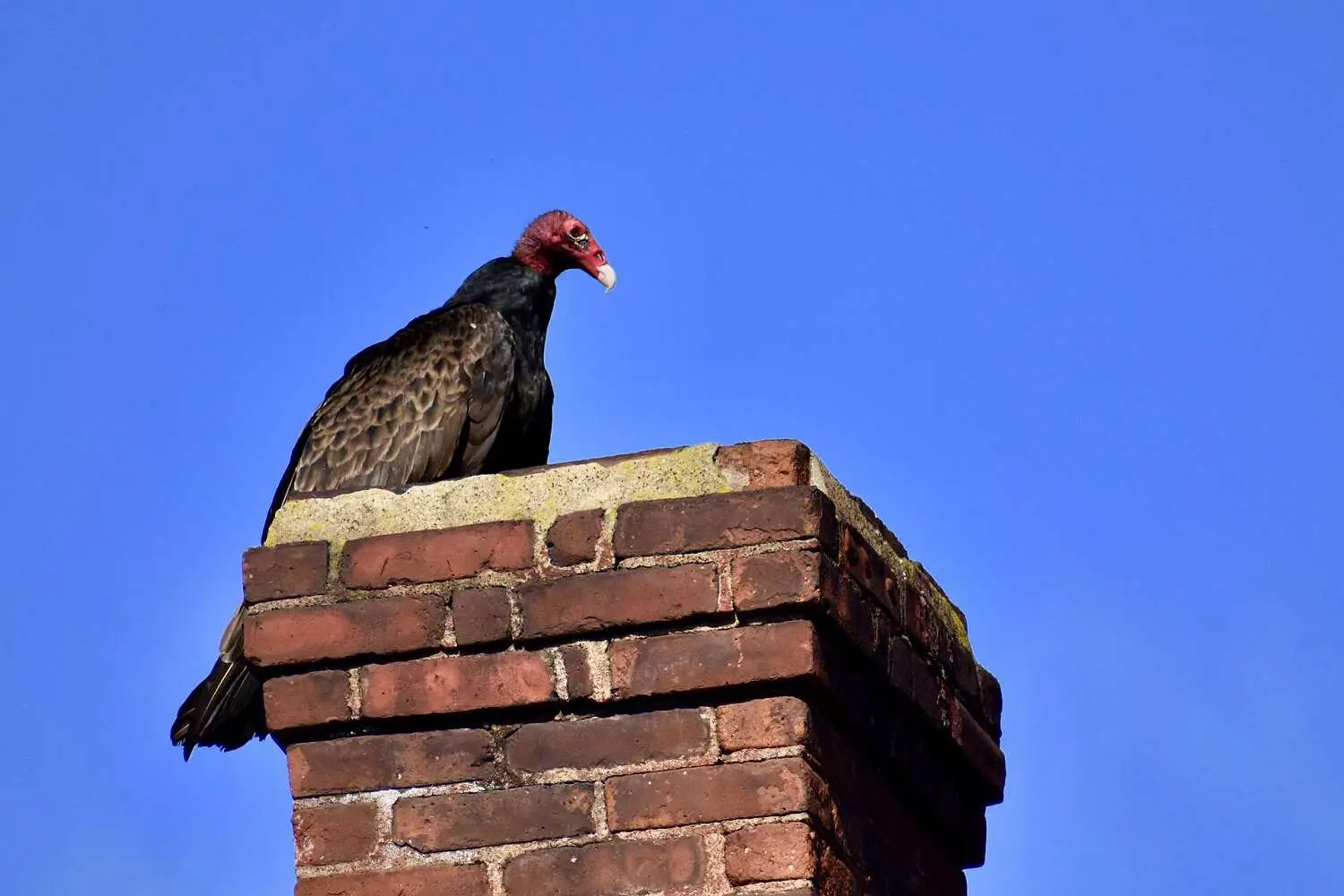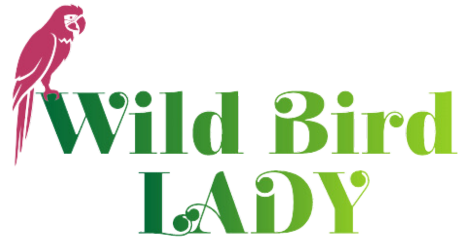The best ways to deter vultures are through the use of visual deterrents and physical barriers. Effective methods include scarecrows, shiny objects, noise-makers, fencing, netting, and roost inhibitors.
These methods are humane and do not cause harm to these birds. Vultures are often viewed as a nuisance, particularly around residential and commercial properties. Their droppings and scavenging tendencies can cause property damage and pose health risks. However, it is important to use humane methods to deter vultures, as these birds play a vital role in the ecological balance.
In this article, we will explore nine humane methods that can be used to effectively deter vultures, without causing harm to these magnificent birds. These methods involve the use of visual deterrents, such as scarecrows and shiny objects, and physical barriers, including fencing, netting, and roost inhibitors. With the right approach, it is possible to coexist peacefully with vultures while protecting your property.

Credit: www.science.org
Why Deter Vultures From Your Property
Explanation Of Damage Vultures Can Cause To Properties
If now and then you spot vultures hovering around your property, you might want to take action to deter them. Vultures’ droppings can accumulate on your roof, causing structural damage that can be costly to repair. Additionally, vultures can chew on your roofs, vents, drain pipes, solar panels, and other house parts, leading to costly damage.
Overview Of Health Risks Associated With Vultures
Not only can vultures cause property damage, but they also pose health risks to humans and pets. Vultures carry diseases and parasites that can be transmitted to pets and humans. Their droppings can harbor bacteria and fungi that can cause respiratory problems.
Besides, vultures’ presence in your home can attract rats and other pests that can pose additional threats to your health.
Importance Of Using Humane Methods To Deter Vultures
While it may be tempting to resort to lethal methods to get rid of vultures, it is essential to prioritize humane methods. Using cruel methods can pose legal, ethical, and environmental risks. Instead, consider using humane methods such as decoys, bird repellents, sound deterrents, habitat modifications, and exclusion techniques.
It will ensure that your property remains safe and healthy while safeguarding the ecosystem’s balance.
Understanding Vulture Behavior
Overview Of Vultures And Their Habits
Vultures are large birds that belong to the same family of raptors as eagles and hawks. With a wingspan of up to ten feet and a height of around two feet, these birds can be quite intimidating. They are known for their scavenging habits, feeding on the carcasses of dead animals.
Some species of vultures are found throughout the world, and they play significant roles in ecosystems as nature’s clean-up crew.
Here are some facts on their habits:
- Most vultures are carrion eaters and don’t hunt live animals.
- They have excellent eyesight and can locate a dead animal from miles away.
- They are often seen circling high in the sky, searching for food.
- Vultures are social birds and often seen in large flocks.
- They play an essential role in the ecosystem by consuming carcasses and thus preventing the spread of diseases.
Explanation Of Why Vultures Are Attracted To Properties
While vultures are a crucial part of the ecosystem, they can be a headache for property owners due to their scavenging habits. The smell of dead animals or other organic material is what attracts vultures towards a property. Here are some reasons why vultures are attracted to properties:
- Vultures are attracted to open and sunny spaces, which make properties with large open spaces and fields a prime target.
- Dead animals or animal waste are a significant attraction for vultures. They can often pick up the scent of a dead animal from miles away.
- If there is an abundance of food, vultures may choose to stay on the property and build their nests.
Identifying Signs Of Vulture Presence On A Property
Vultures are large birds and are easily visible, making it easy to spot their presence on a property. Here are some signs to look out for:
- You may spot vultures circling around or perching on trees or buildings on your property.
- Vultures often leave a trail of feathers, excrement, and partially eaten food in their wake. You may notice these signs around your property.
- A large number of vultures gathering on your property is a clear sign that they are attracted to something there.
To deter vultures from your property, it is essential to identify the reasons why they are attracted to your property in the first place. Use humane methods to keep them away.
Humane Ways To Deter Vultures
Vultures can be a real nuisance for farmers, gardeners, and anyone who raises livestock. But using cruel or inhumane methods to deter them is never the answer. Luckily, there are several humane ways to deter these birds from your property.
Here are some of the best options:
Physical Barriers – Explanation And Examples
Physical barriers are one of the most effective ways to keep vultures away. Here are some examples:
- Fences: Erecting a tall fence around your property can be an effective way to keep vultures out. Be sure to choose a fence with tightly spaced slats to prevent vultures from slipping through the gaps.
- Netting: You can also use netting to cover vulnerable areas, such as gardens or livestock areas.
Visual Deterrents – Explanation And Examples
Visual deterrents work by scaring vultures away with images they find threatening or unsettling. Here are some examples:
- Scarecrows: A well-placed scarecrow can be a great way to deter vultures. Be sure to move them around frequently to make them more convincing.
- Reflective tape: Hanging reflective tape in areas where vultures are a problem can be highly effective. The tape will move in the wind and will create flashes of light that vultures find unsettling.
Sound Deterrents – Explanation And Examples
Sound deterrents are an excellent option when you want to deter vultures from a particular area. Here are some examples:
- Predator calls: Vultures are naturally scared of predators like coyotes and hawks. You can use pre-recorded calls from these predators to keep vultures at bay.
- Wind chimes: Vultures are sensitive to sound and do not like loud, clanging noises. Wind chimes can be an effective way to scare them away.
Chemical Deterrents – Explanation And Examples
Chemical deterrents can be effective, but it’s important to choose products that are safe for both the vultures and the environment. Here are some examples:
- Capsaicin spray: Capsaicin is a chemical found in hot peppers that can be an effective deterrent for vultures. Spraying a solution of capsaicin and water in areas where vultures are a problem can keep them away.
- Naphthalene flakes: Vultures do not like the smell of naphthalene, which is found in mothballs. Sprinkling naphthalene flakes in areas where vultures gather can be an effective way to deter them.
Importance Of Avoiding Harmful Deterrents
It’s crucial to use humane methods to deter vultures. Using harmful or inhumane methods can be dangerous to both the vultures and other wildlife. It’s also important to choose methods that won’t harm the environment or other animals. By using humane deterrence methods, you can keep vultures away from your property without causing harm.
Implementing Vulture Deterrents
Best ways on how to deter vultures – 9 humane methods
Vultures play an essential role in our ecosystem, but they can also cause damage to properties and pose a danger to livestock and pets. Here are nine humane methods to deter vultures from your property. In this blog post, we will look at the implementation of vulture deterrents with step-by-step guides and explanations on how to choose your deterrent method.
Explanation Of How To Choose Which Deterrent Methods To Use
Choosing a vulture deterrent method depends on the bird’s behavior and the location of the property. Here are some essential factors to consider:
- Behavior of vultures in your area.
- The size and type of area in need of protection.
- Visibility of the area to passing vultures.
- Budget
- Your personal preferences.
Knowing these factors can help determine which methods will work best for you.
Step-By-Step Guide To Implementing Physical Barriers
Physical barriers are the most common method to deter vultures. Here is a step-by-step guide on how to implement physical barriers:
- Evaluate the location: Look around the area and determine where you need to set up barriers.
- Choose your barrier: Common physical barriers are netting, spike strips, and fencing. Make sure to choose one that fits your needs.
- Install the physical barrier: Install the barrier in the necessary locations and ensure it’s secure.
- Inspect regularly: Inspect the barrier for any damage or gaps.
Physical barriers are effective, but remember to keep the barrier well-maintained to ensure its continued effectiveness.
Step-By-Step Guide To Implementing Visual Deterrents
Visual deterrents aim to scare off vultures with visual effects. Here is a step-by-step guide on how to implement visual deterrents:
- Identify the location: Determine where you plan to implement visual deterrents.
- Choose a visual deterrent: Common visual deterrents include balloons, reflective tape, and garden ornaments.
- Install the visual deterrent: Set up the visual deterrent in the necessary locations.
- Move the deterrent regularly: Move the deterrents frequently to make them more effective.
Visual deterrents are highly effective in deterring vultures but remember to move them regularly.
Step-By-Step Guide To Implementing Sound Deterrents
Sound deterrents use sound to scare off vultures from your property. Here is a step-by-step guide on how to implement sound deterrents:
- Identify the location: Determine where you plan to implement sound deterrents.
- Choose a sound deterrent: Common sound deterrents include music, ultrasonic devices, and distress calls.
- Install sound deterrent: Install the sound deterrent in the necessary locations with a power supply.
- Adjust the volume: Make sure the volume is at a level that can be heard by vultures.
Sound deterrents are effective, but make sure to adjust the volume for effectiveness and to avoid disturbing neighbors.
Step-By-Step Guide To Implementing Chemical Deterrents
Chemical deterrents are non-harmful chemicals used to scare off vultures. Here is a step-by-step guide on how to implement chemical deterrents:
- Identify the location: Determine where you plan to implement chemical deterrents.
- Choose a chemical deterrent: Common chemical deterrents include methyl anthranilate and triclopyr.
- Mix the deterrent: Follow the manufacturer’s instructions to mix the deterrent and place it in dispensers.
- Replace the deterrent regularly: Chemical deterrents can evaporate quickly, so make sure to replace them periodically.
Chemical deterrents are safe, but make sure to replace them regularly for continued effectiveness.
There are several humane methods to deter vultures from your property. Always remember to choose a deterrent that fits your budget and preference, inspect your deterrents periodically, and replace them if necessary. With the methods outlined above, you can keep your property safe from vultures while still protecting our ecosystem.
Frequently Asked Questions Of “Best Ways On How To Deter Vultures – 9 Humane Methods”
What Are Vultures Attracted To?
Vultures are attracted to carrion or dead animals. They are also attracted to places where there are often animal carcasses.
Will Hanging Cds Deter Vultures?
Hanging cds may deter vultures because they are deterred by light reflections. You can also use scarecrows or effigies.
What Are Some Humane Ways To Deter Vultures?
Some humane ways to deter vultures include using bird netting, covering carcasses with a tarp, using non-toxic chemicals, and keeping the area clean.
Will Electric Fences Keep Vultures Out?
Electric fences are not very effective in keeping vultures out. Vultures are not very sensitive to electric shocks and can easily jump over obstacles.
Can Vultures Be Scared Away?
Yes, vultures can be scared away using loud noises, scare tactics, or predators’ calls. However, it is important to use humane methods only.
Conclusion
Protecting your property or farm from vultures is crucial, as they can cause significant damage to livestock and crops. In this article, we have outlined nine humane ways of deterring vultures that are effective and easily implemented. From placing visual deterrents, such as shiny objects or predator effigies, to building physical barriers, these methods are proven to work and can help save you time and money in the long run.
It’s important to remember that vultures, just like other animals, play a crucial role in our ecosystem. By using humane methods, we can ensure that they are deterred from causing harm to our livestock and property while still allowing them to play their essential role in nature.
With these tips in mind, you can now protect your property from vultures in a safe, humane, and effective way.
Latest Posts
The Ultimate List: Top 8 Best Birdwatching Podcasts for Avid Birders
Looking for the top birdwatching podcasts? Here are the eight best options to tune into today! Birdwatching can be a thrilling, immersive experience that brings...
Stop Squirrels in Their Tracks: 10 Effective Ways to Safeguard Your Bird Feeder Pole
To prevent squirrels from climbing your bird feeder pole, use squirrel baffles and slippery poles. Here are ten effective ways to keep squirrels from stealing bird food and damaging bird feeders. ...


